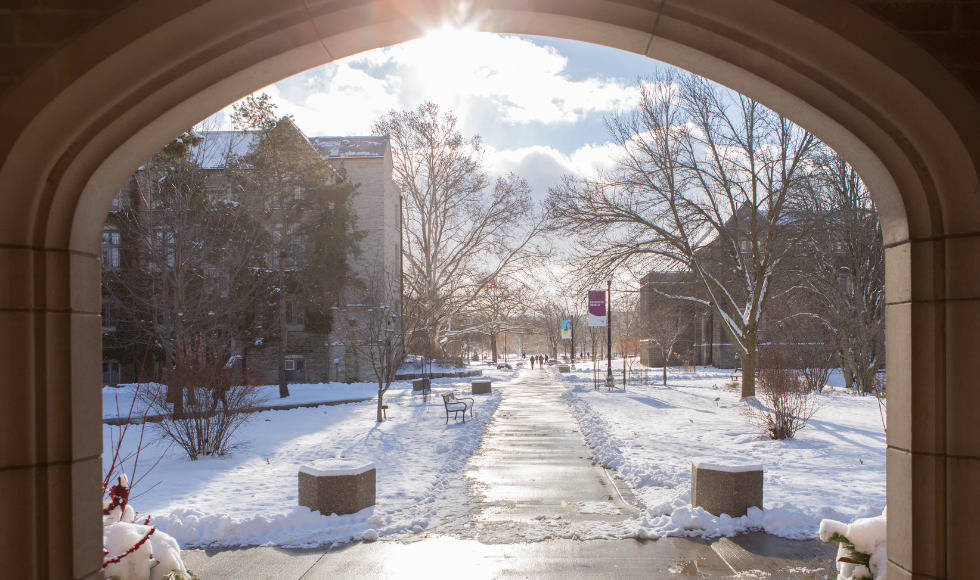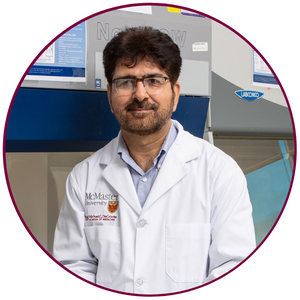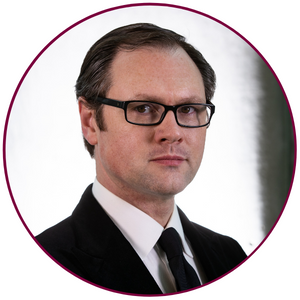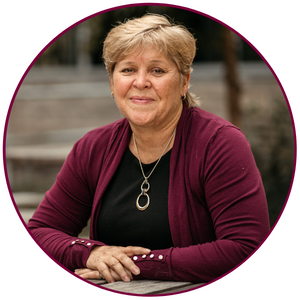Ten McMaster researchers named Canada Research Chairs

January 12, 2022
Ten McMaster researchers across four faculties have been named Canada Research Chairs as part of a national strategy to make this country a global leader in research and development.
Five of the researchers have had their chairs renewed, while five have been named new Canada Research Chairs – an investment of nearly $9M.
The funding was announced today by the Honourable François-Philippe Champagne, Minister of Innovation, Science and Industry.
Karen Mossman, vice-president, research, says the Canada Research Chairs program helps to drive McMaster’s research success and the country’s knowledge base.
“The chairs program is unmatched and allows us to grow our research enterprise by attracting and retaining some of the world’s top scholars,” she says.
“A huge shout out to all of our new and renewed Canada Research Chairs. The influence and impact of their work will lead to significant advances in a range of diverse disciplines and, ultimately, improve the lives of Canadians.”
McMaster’s new and renewed Research Chairs are:

Ali Ashkar – Faculty of Health Sciences (Tier 1)
Ali Ashkar has been renewed as the Canada Research Chair in Natural Immunity and NK Cell Function. Ashkar is a professor in McMaster’s department of pathology and molecular medicine where he established an active lab with a focus on innate immunity to cancer and viral infections. The researcher came to McMaster University in 2001 to study innate mucosal immunology. Ashkar’s first career was in veterinary medicine and he received his Doctor of Veterinary Medicine (DVM) degree in 1992.
 Sara Bannerman – Faculty of Humanities (Tier 2)
Sara Bannerman – Faculty of Humanities (Tier 2)
Sara Bannerman is a researcher in communications policy and governance and looks at the ways digital platforms change how we relate to each other. The McMaster associate professor in communication studies & media arts examines how big tech can play a role in shaping global events and culture. Bannerman has been renewed as the Canada Research Chair in Communication Policy and Governance. She also directs McMaster’s Communications Governance Observatory and is a governing board member of the International Society for the Theory and History of Intellectual Property.

Katrina Choe – Faculty of Science (Tier 2)
Katrina Choe, an associate professor in the department of psychology, neuroscience & behaviour, has been named a Canada Research Chair in Integrative Neurobiology of Social Behaviour. She and her research team study how gene mutations associated with psychiatric disorders affect brain controls at molecular, cellular, circuit and network levels. The neuroscientist’s recent research has examined how gene mutations associated with autism interfere with social behaviour, and her team’s findings point to the potential of oxytocin as an autism treatment.

Zeinab Hosseinidoust – Faculty of Engineering (Tier 2)
Zeinab Hosseinidoust’s research is in employing the intelligence of biological systems (specifically bacteriophages and bacteria) to tackle outstanding challenges related to human health. The assistant professor in McMaster’s department of chemical engineering has been named a Canada Research Chair in Bacteriophage Bioengineering. Hosseinidoust is also an associate member at the Michael DeGroote Institute for Infectious Disease Research, The Farncombe Institute and the School of Biomedical Engineering.
 Victor Kuperman – Faculty of Humanities (Tier 2)
Victor Kuperman – Faculty of Humanities (Tier 2)
Victor Kuperman, an assistant professor in McMaster’s department of linguistics and languages, has been renewed as the Canada Research Chair in Psycholinguistics. Kuperman is applying his research in psycholinguistics and quantitative linguistics to study how the COVID-19 pandemic has affected the social mobility of certain vulnerable segments of the Canadian population. Kuperman is also the director of McMaster’s Reading Lab, a member of The Centre for Advanced Research in Experimental and Applied Linguistics (ARiEAL) and a research scientist at Haskins Laboratories.
 James MacKillop – Faculty of Health Sciences (Tier 1)
James MacKillop – Faculty of Health Sciences (Tier 1)
James MacKillop, whose research applies behavioral economics and neuroeconomics to understand addictive behavior, has been named a Canada Research Chair in Translational Addiction Research. A professor in the department of psychiatry & behavioural neurosciences, MacKillop’s recent work has examined changes in alcohol and cannabis use during the pandemic. He is the director of The Peter Boris Centre for Addictions Research, director of the Michael E. DeGroote Centre for Medicinal Cannabis Research and a senior scientist with the Homewood Research Institute.

Hsein Seow – Faculty of Health Science (Tier 2)
Hsien Seow has been renewed as the Canada Research Chair in Palliative Care and Health System Innovation. Seow, an associate professor in the Faculty of Health Sciences’ oncology department, is a researcher in health services and policy. He is focused on innovating the palliative care health system and improving quality of care. His recent work has been in improving access to palliative care for Indigenous Ontarians. Hsien is also the Director of the McMaster-ICES hub and is an Escarpment Cancer Research Institute scientist.
 Heather Sheardown – Faculty of Engineering (Tier 1)
Heather Sheardown – Faculty of Engineering (Tier 1)
Heather Sheardown has been renewed as the Canada Research Chair in Ophthalmic Biomaterials and Drug Delivery Systems. Sheardown, the acting dean of McMaster’s Faculty of Engineering and a professor in the department of chemical engineering, is working to find ways to treat ocular diseases of the aging eye. Sheardown is the scientific director of the C20/20 Innovation Hub, which works to advance the development and commercialization of ophthalmic bioengineered technologies and drug delivery.

Sarah Styler – Faculty of Science (Tier 2)
Sarah Styler, an assistant professor in McMaster’s department of chemistry & chemical biology, has been named the Canada Research Chair in Atmospheric Chemistry. Her past work has focused on chemistry and photochemistry in atmospheric aerosol populations. Her research aims to provide insight into the air quality of urban centres and in turn, the climate and health challenges these areas face.

Igor Zhitomirsky – Faculty of Engineering (Tier 1)
Igor Zhitomirsky, a Distinguished professor in McMaster’s department of materials science and engineering, has been named a Canada Research Chair in Micro-nano Technologies. His research lies in biomaterials, nanomaterials, energy storage, electrochemical technologies and functional materials. Zhitomirsky’s research work can be applied to electrochemical supercapacitors for hybrid vehicles, lead acid batteries, solid oxide fuel cells, solar cells, and electronic devices. He has developed a state-of-the-art electrochemical and nanomaterials processing facility during his time at McMaster.
Tier 1 Chairs, which are held for seven years and renewable once, are for outstanding researchers who are considered world leaders in their fields.
For each Tier 1 Chair, McMaster receives $200,000 annually for seven years.
Tier 2 Chairs, which are held for five years and are renewable once, are for exceptional emerging researchers who have the potential to lead in their field.
For each Tier 2 Chair, McMaster receives $100,000 annually for five years, with an additional $20,000 annual research stipend for first-term Tier 2 Chairs.


